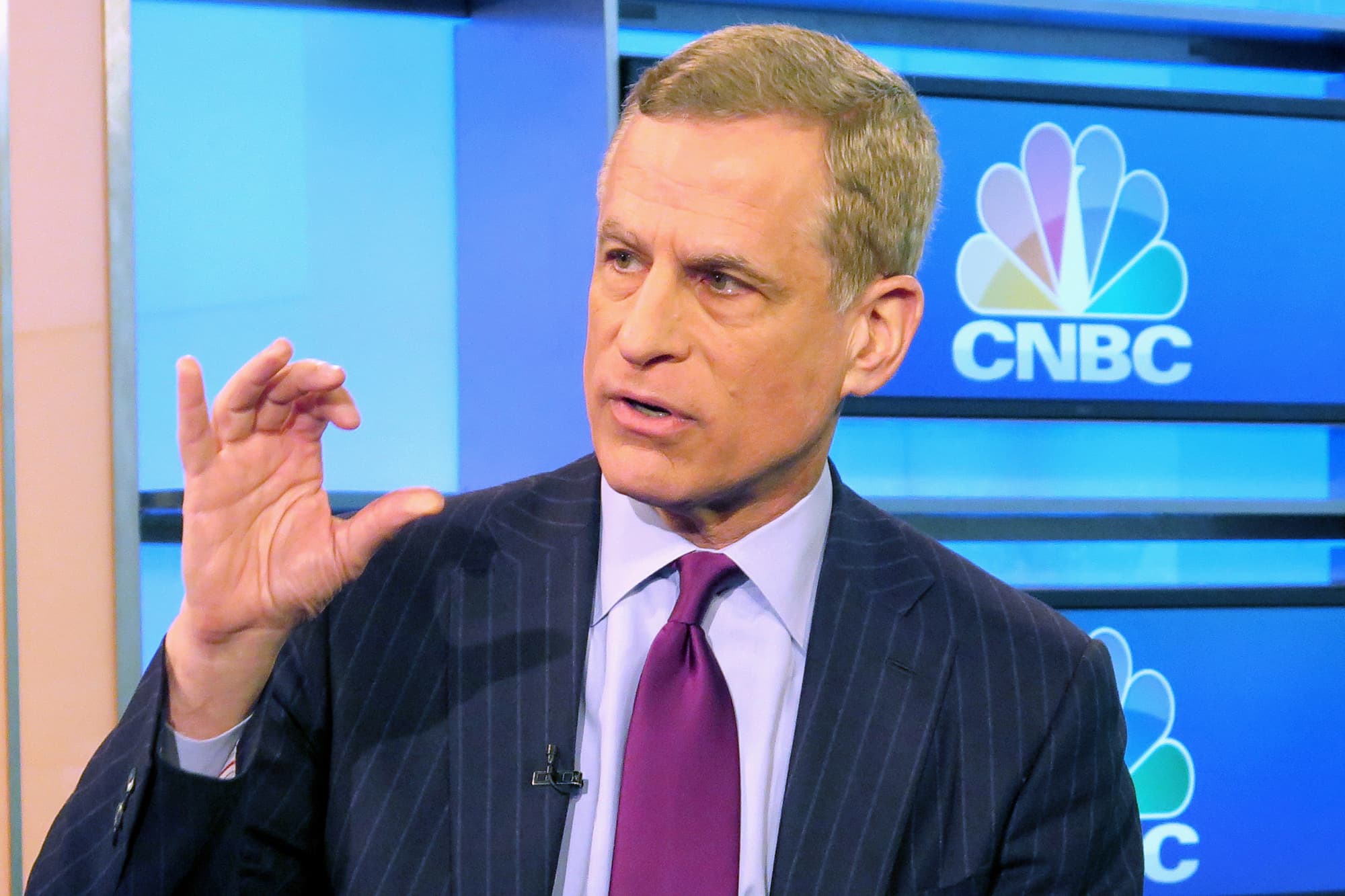Dallas Fed President Robert Kaplan told CNBC on Wednesday that it is likely appropriate to keep interest rates anchored near zero for up to three years to aid the U.S. economic recovery from the coronavirus pandemic.
“I think we’re going to need to keep the Fed funds rate at zero … for the next probably 2½ to three years years,” Kaplan said on “The Exchange.” ” It could be that long that until we get on track, to have weathered the crisis and are on track to meet our full employment and price stability goals.”
Earlier this month, the Federal Reserve’s policymaking committee voted to keep short-term rates targeted at 0%-0.25%, where they have been for the last six months, and indicated they would remain there until inflation rises consistently.
Kaplan was one of two Federal Open Market Committee members to vote against the policy action, but he stressed Wednesday it is due to his desire for the central bank to have more leeway to its monetary approach.
“My dissent is about making commitments beyond that point. I think beyond that point, I’d rather see us keep some flexibility,” Kaplan said, while noting the Fed’s new policy of average inflation targeting is likely to mean lower interest rates even as unemployment rate falls.
“I don’t know if that’s going to be appropriate. Historically, it wouldn’t have been,” added Kaplan, who has headed the Federal Reserve Bank of Dallas since 2015. “With the new framework and our inflation targets, I think we’re going to be more accommodative than we have been in the past, but I don’t know if we want to be committing to keeping rates at zero until we meet these targets.”
To be sure, Kaplan emphasized he continues to believe in the accommodative stance the central bank has adopted in response to the pandemic.
“Obviously, we’re doing extraordinary actions, not just the Fed funds rate but also what we’re doing with the 13(3) programs and asset buying, but we need to because it’s a crisis,” Kaplan said, referring to the emergency lending enabled under the 13(3) powers of the Federal Reserve Act.
However, Kaplan cautioned there are limits to what the central bank can do for the U.S. economy, contending more stimulus from Congress to make up for lost income is necessary.
After weeks of a stalemate between Democratic negotiators and Trump administration officials, Treasury Secretary Steven Mnuchin told CNBC earlier Wednesday he was “hopeful” there could be a deal.
“One of the unusual things about this pandemic has been consumer income and consumer spending has stayed resilient, and a big reason why is fiscal support,” Kaplan said. “I think it would create downside risk if we weren’t going to get that fiscal support.”
